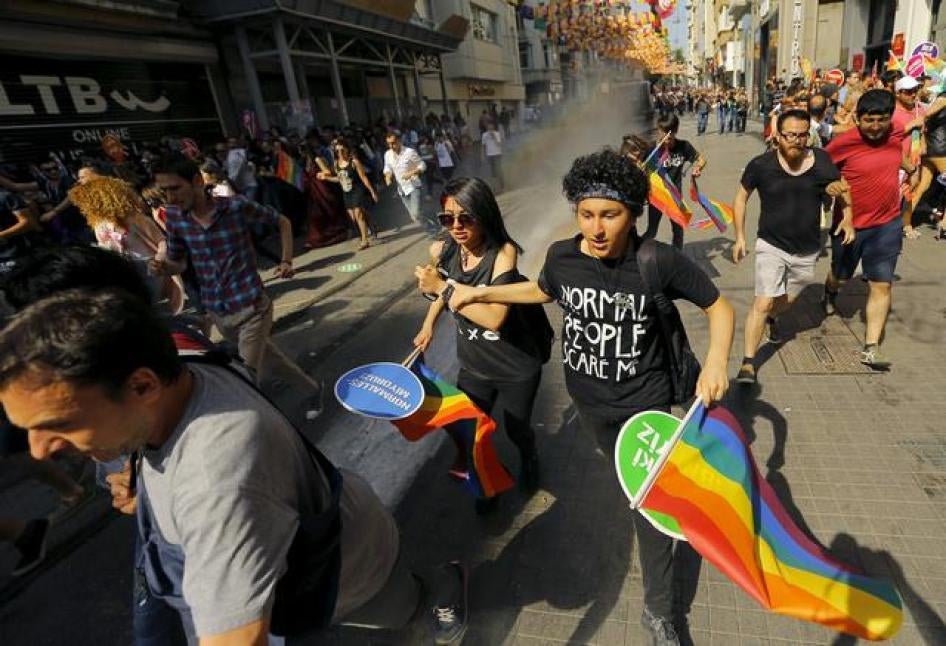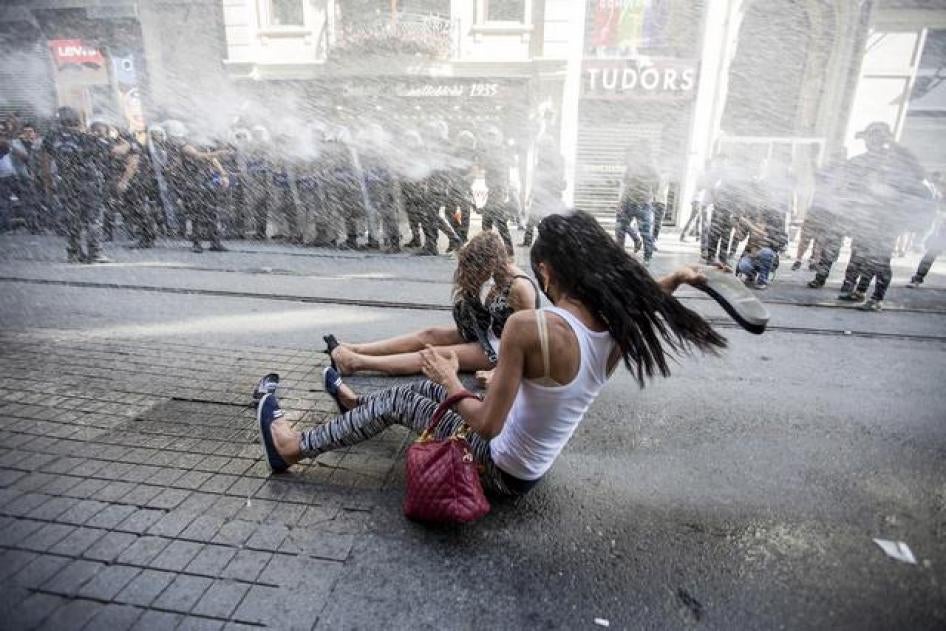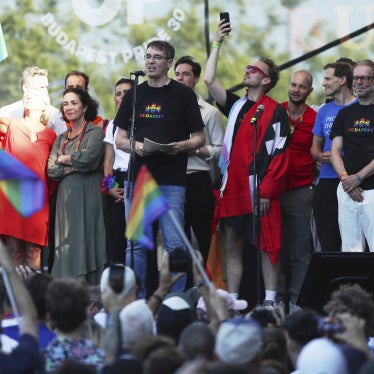Istanbul police on Sunday violently disbanded the city’s LGBT pride march – an event carried out for years without police intervention or restrictions.
Organizers say the Istanbul governor’s last-minute clampdown was because the parade coincided with the month of Ramadan. The governor’s office today issued a statement claiming the organizers had not informed them of the parade, that officials had dispersed it because they had “received information that some groups might react to it,” and that police had “been careful to abide by the principle of proportionality” in dispersing the parade.
Videos posted on social media show anything but proportionality, with police firing water cannons and rubber pellets at marchers waving rainbow flags.
KaosGL, a Turkish LGBT rights group, said they received calls throughout the night reporting injuries – including a victim hit with a rubber pellet who, they were told, might lose their eye. Human Rights Watch has documented a pattern of violent police dispersal of peaceful protests in Turkey, and the European Court of Human Rights has repeatedly found Turkey in violation of the right to assembly.
Violence based on sexual orientation and gender identity has been an endemic problem in Turkey – and met by silence from most state officials. On the International Day Against Homophobia and Transphobia this year, the Istanbul-based group Social Policies, Gender Identity and Sexual Orientation Studies Association decried persistent discrimination, impunity for violence, and lack of legal recognition and protection for LGBT people in Turkey.
The crackdown comes amid broader tightening of press freedoms and erosion of the rule of law in Turkey over the past few years. .
LGBT issues were a lightning rod during the June 2015 election, with 57 parliamentary candidates signing a pre-election pledge supporting LGBT rights. However President Erdogan also accused an opposition party that nominated an openly gay candidate of “pandering”, and some members of the ruling Justice and Development Party contended that homosexuality cannot be reconciled with Islam.
A pro-government coalition of nongovernmental groups has declared that Turkish people cannot “forgive those who push forward homosexual perversion onto the people as if it were a legitimate act”, a sign of the pressure on the government to deny LGBT rights.
But not all authorities have been cowed. Earlier this year, for example, police in the Atasehir Municipality in Istanbul responded to an anti-gay Twitter troll with a message of support for the LGBT community, which was then echoed by Atasehir’s mayor.
As the dust settles on yesterday’s violence, the new government will need to offer public assurance that it will protect LGBT people and freedom of assembly, and investigate both the last minute decision to ban the parade and the police violence.










